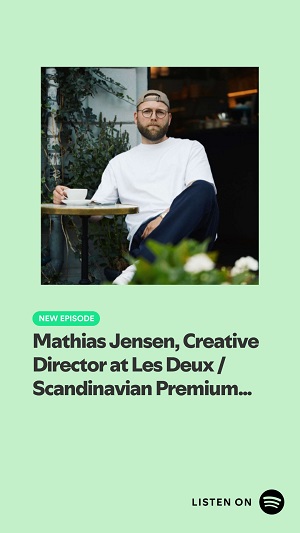1
HOME > Trends >
WHAT IS SUSTAINABLE FASHION AND WHAT CHALLENGES DOES IT FACE?
WHY SUSTAINABILITY IS NOW THE FOCUS OF THE CLOTHING INDUSTRY
Written by Craig Landale in Trends on the 22nd March 2018
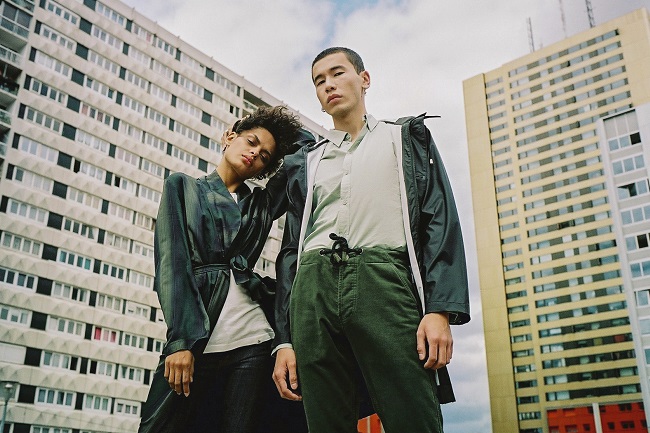
Sustainable fashion is finally getting the attention it deserves. You’ve probably seen some of your favourite brands bringing out sustainable collections or at least collaborating with a sustainable brand for a recent product launch. Last year there was big hype for the new high street store ARKET which is aimed at the style-conscious, sustainability-aware, minimalist consumer. And this year sustainable fashion is bigger than ever; a result of the fashion industry trying to clean its act up after its consumers became aware of the direct effects of what throwaway cheap fashion can have on people and the environment. But there’s still a disconnect between buying behaviour and the values people hold. If I was to ask 100 people if they will buy sustainably (see Twitter poll below) in 2018, I’m sure the majority would say so, but when we actually make our everyday buying choices, this sadly goes out of the window. It’s the same with the plastic in the oceans; we all know what we need to do in terms of recycling and avoiding unnecessary packaging to save this earth, but not enough of us are putting it into practice. A lot of this comes down to education and customers demanding transparency from their favourite fashion brands. So, with this mind I set out to speak to a few of my favourite brands to find out what sustainable fashion actually is and what challenges these brands face to make sure their clothing is manufactured in a sustainable manner.
Cheap Monday are a brand which have recently turned their focus to sustainable fashion, so I got in touch with their Marketing Director, Rocky af Ekenstam Brennicke, to find out more. When asked what inspired this shift, she described how she wanted to contribute to a better, more sustainable future and believes their consumers are looking forward to embarking on the journey. “We aim towards inspiring and engaging our consumers to recycle unwanted textiles and to save energy and water when caring for their garments.”
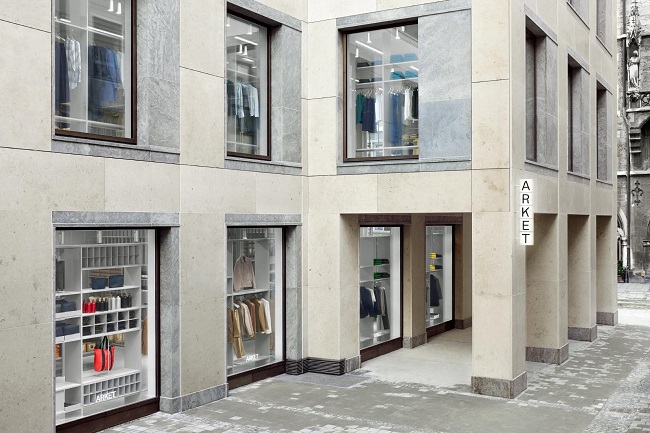
Rocky acknowledges the difficulties but she is here for the long term. She mentions how it’s all about changing mindset but there can still be technical difficulties e.g. certain materials do not yet have a sustainable equivalent, but for most there are available existing alternatives. What is key however is collaboration in achieving long-term change across the entire textile industry. “The challenges we face are too complex for any single company to tackle alone. Sustainability needs to not be seen as added-value, but more as a necessity. We cannot continue producing garments like they previously were produced.” Conventionally grown cotton has entirely been replaced by organic cotton. Cheap Monday are a denim brand, so that is a vast part of the material they use. However, other more sustainable materials are also used in their collection such as: recycled cotton, recycled polyester, recycled wool and Tencel (A natural material made from the cellulose of fast-growing trees that is grown in sustainable plantations). With all these technical terms being thrown around my mind goes back to educating the consumer, so I ask Rocky if she thinks the average customer still needs educating on this subject; “Quite the opposite, we see that our consumers are very engaged and concerned about sustainability, which is precisely why we do all we can to offer sustainable jeanswear. And we also want to invite our consumers to take part in this movement: amend, recycle and prolong the garment’s life by washing it differently for example. What we focus on however is to be more transparent about what we do as a brand in order to improve our impact.”

Sir Plus are a brand that was first set up to create product in a sustainable way. The Founder Henry Hales used sirplus fabrics to make boxer shorts, so as an expert in this field we got in touch. “We like to think of ourselves as a menswear brand that happens to be sustainable. It’s not our driving principle, but it’s very important to us. When we started out using surplus fabrics, it felt like a different way to make clothes ethically, since we were using fabric that already existed and would otherwise have been used for another purpose. As we’ve grown, we’ve introduced non-surplus fabrics, but we make sure that they are kind to the environment. There is always the challenge of moving production overseas, which we do on occasion when it comes with a strong enough benefit. Our shirts for example are made in Portugal because we found an incredible factory that is highly skilled and makes top quality product. It means that our shirts are very long-lasting, which in itself is sort of an antidote to fast fashion.”
Another interesting brand, Re.Sustain, a sustainably sourced and manufactured collection of contemporary menswear and womenswear. We spoke to Matt Peters from the brand to get their story; “We decided to set up a brand to prove you can look good and do good. We make simple, well-made basics designed to be a permanent fixture in your wardrobe. We choose to use organic cotton as organic agriculture has been shown to actually reverse climate change as it takes carbon from the atmosphere and locks it into the soil. You might want to re-read that last sentence, it was a real game changer for us. Why wouldn’t you choose organic cotton products if you had the opportunity?”
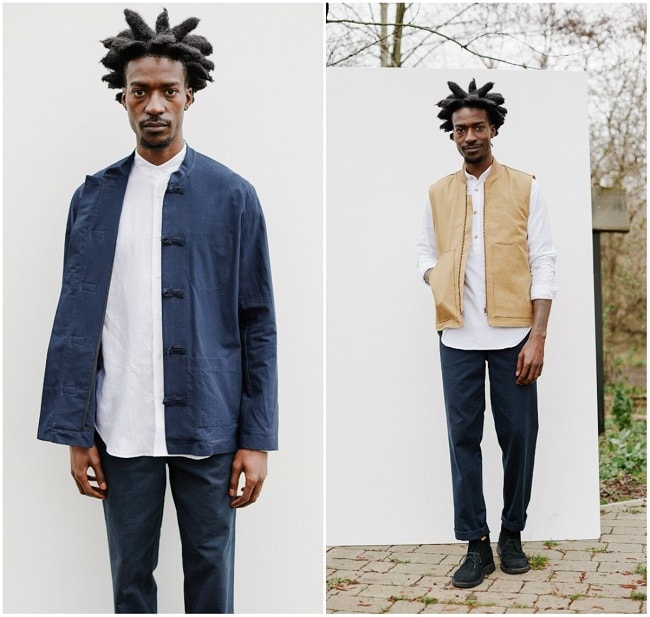
A brand that truly understands that social issues and environmental crisis are now matters of urgency is VEJA, who are all about transparency, organic materials and fair-trade sourcing. We sat down with their co-founder Sébastien Kopp to see if he could enlighten us on the matter. In 2003, him and his friend Ghislain Morillion travelled the world to audit big firms about their CSR policy overseas and they were quite disappointed with the gap between communication and action. At 25 years old, they decided to create a sneaker brand that respects the environment and the people behind it. They had chosen sneakers, first because it’s a product they both love, and also because sneakers concentrate a lot of marketing costs compared to the raw materials and production in the final price. Their idea was to take down these marketing costs and put it back into the product, investing in fair trade and organic materials. “We spent months in deep Brazil, meeting farmers and producers. We deconstructed the sneakers’ supply chain to rethink each steps of the process.” Moving the conversation to the difficulties of operating a sustainable business, Sébastien agrees; “Working in the fashion industry and moreover in a sustainable way is challenging. We always try to be more creative and find innovation for our raw materials, production and how to develop our positive chain. There are no difficulties if you do things with passion. We have people working for us in Brazil, making sure that everything is controlled such as working conditions and ecological processes. We are growing organically, we depend on the raw materials and on natural resources, which help us to make good choices.”
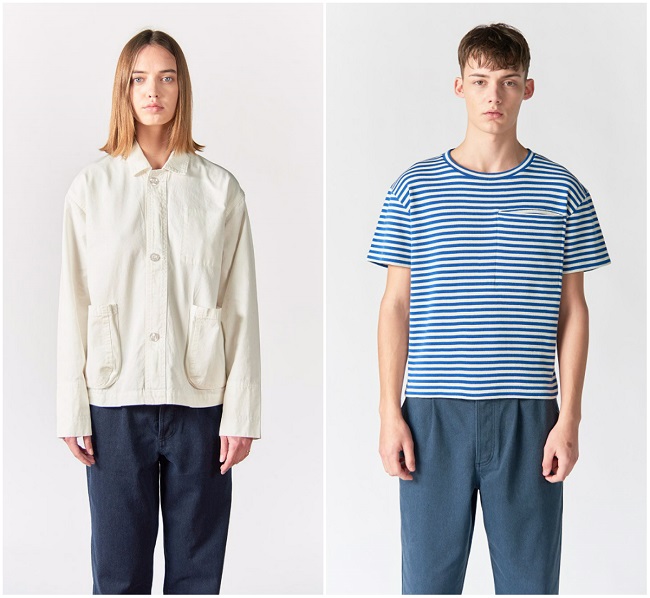
Moving the focus onto why brands are now pivoting to sustainability, I ask him why now in 2018 and why is it suddenly so important. “Since we started, the global public conscience is much bigger. We want actions to follow global conscience. We don’t spend time watching or judging others, but we do and we create to cure ourselves from the dark side of knowing what is happening to the world.” He paints a bleak picture but this honest attitude is the truth and we need people like Sébastien to inspire others and encourage change in the clothing industry. VEJA’s three main materials are wild rubber, agro-ecological cotton and B-mesh. Rubber is used in the sole of every sneaker and is sourced from the Amazon forest, directly from rubber tapper communities, paying a fair price. The Amazon is the only place on Earth where rubber trees grow in the wild. In the Brazilian state of Acre, the Seringueiros harvest the rubber used in their soles. “It helps to fight against deforestation as the Seringueiros prefer to work for us than to cut the trees to raise cattle. Since my brand began, 130 tons of wild rubber have been purchased, meaning around 300,000 acres of Amazon forest preserved. Our cotton, used on our canvas and linings, is more than organic; it’s agro-ecological, which means that it helps the field to be more productive, using principles of plants and helping each other without any chemical use and reducing the amount of water used. We also developed the B-Mesh, which is the first material made 100% out of recycled plastic bottles which is waterproof and breathable.”
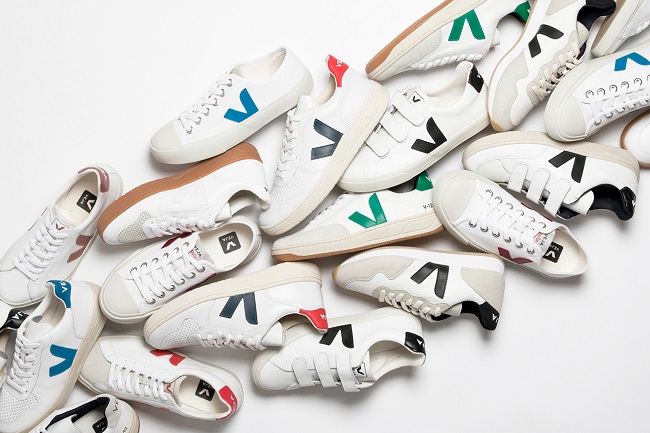
Will you be buying sustainably this year? #fashion
— Menswear Style (@MenswearStyle) March 22, 2018

Trending
2
3
4
5
6
7
8
9
10






